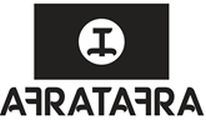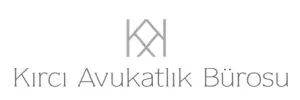Yiğit Demir v Afra Tafra Film Yapım ve Prodüksiyon Limited Şirketi & Türk Patent ve Marka Kurumu, Ankara 2nd Civil Court of Intellectual and Industrial Property Rights, Merit No 2021/357 E, dated 18 May 2022
The mere usage of the sign via domain name, website, and social media accounts, even absent proof of any physical sales thereof, was regarded as trademark use and was further found eligible to establish ownership of other previous rights in the sign.
Legal Context
The action was related to the invalidation of the final decision of the Reexamination and Evaluation Board of the Turkish Patent and Trademark Office.
The basis of the action were Article 6/3 stipulating that "an application for a trademark registration shall be refused upon an opposition if there is a right acquired for an unregistered trademark or another sign used during commerce before the date of application or priority", Article 6/6 stipulating that "the application shall be rejected upon the request of the proprietor in case that the trademark applied for registration contains person name, commercial title, photograph, copyright or any intellectual property rights of another person", and Article 25 stipulating that "if one of the conditions mentioned under Articles 5 or 6 exists, invalidation of a trademark shall be decided by the court", of the Turkish Industrial Property Law no. 6769.
Thus, the genuine ownership of the sign as well as previous rights of other persons, regulated under Article 6 of the Turkish Industrial Property Law no. 6769, are regarded as not only the relative grounds for refusal in trademark registration but also the invalidation of the trademark.
Facts
The defendant, Afra Tafra Film Yapım ve Prodüksiyon Limited Şirketi, filed a trademark application for "Afratafra & device" under no. 2017/54560 on 14 June 2017 in respect of all the goods and services in the classes 30, 35, 37, 38, 39, 41 and 43. The application was published, and the plaintiff filed an opposition to this publication on the grounds of his genuine ownership on the sign "Afratafra" and his previous rights obtained through domain name, website and social media usages for the same sign especially in respect of advertising, marketing, public relations and related services in class 35, radio and television broadcasting services in class 38, and sport, cultural and entertainment activities in class 41.
The images of the contested trademarks are provided below:
The Plaintiff's Sign

The Defendant's Trademark Application

Turkish Patent and Trademark Office found that the contested trademarks were not confusingly similar as to create a likelihood of confusion on part of the public and that prior use in commerce and previously acquired rights allegations in the contested sign in the opposed classes were not proved and thus, rejected the opposition.
The plaintiff filed an invalidation action regarding the stated decision before the court of the first instance. The Turkish IP Court also dismissed the case, finding that there was no similarity among the contested trademarks and that prior use in commerce and previously acquired right allegations in the contested sign in the opposed classes were not proved.
The reasoned decision of the court was appealed by the plaintiff and the Turkish Regional Court of Appeals (RCoA) rendered the recission of the decision. In the recission of the decision, it was stated that 'the court of the first instance took the expert report, which was not suitable for inspection and further which did not examine plaintiff's allegations, as a basis. It was also argued in the said decision that 'overlooking the evidence on the plaintiff's trademark usage via the internet, which is crucial in the dispute, might violate the right to be heard, which is one of the components of the right to a fair trial arranged in Turkish Constitution.'
At the end of the re-trial, it was concluded by the court of first instance that the allegations regarding genuine ownership could not be proven. However, the court found that the registration of the domain name (afratafra.org) prior to the trademark application, the plaintiff's use of the contested sign on the website under the same domain name and again, promotion of this domain name, website, and the contested sign on his social media accounts, is a trademark use. Thus, the court found that according to paragraph six of Article 6 of Turkish IP Law, the plaintiff has other intellectual property rights on the stated sign previously obtained through the domain name and partially accepted the case.
Accordingly, the court of first instance invalidated the final decision of the Reexamination and Evaluation Board of the Turkish Patent and Trademark Office and the registration of the trademark in respect of advertising, marketing and public relations and related services in class 35, radio and television broadcasting services in class 38, and sport, cultural and entertainment activities in class 41.
Analysis
Since the court of the first instance amended its previous decision after the re-trial, the parties may file an appeal before the RCoA and later before the Court of Cassation (CoC), this meaning that the decision has not yet been finalized.
Practical Significance
According to the Turkish Industrial Property Law no.6769 (Turkish IP Law), the burden of evidencing trademark use may arise on various occasions.
- Evidencing the trademark use is closely related to the likelihood of confusion, which is regulated as one of the relative grounds for refusal in trademark registration under the Turkish Industrial Property Law. In this respect, during the objections filed in the scope of the likelihood of confusion, and when the trademark, which is the ground for objection, is registered for at least five years at the date of the opposed trademark application, the applicant can request evidencing trademark use. (The second paragraph of Article 19 of Turkish IP Law).
- The likelihood of confusion is also among the crucial grounds in trademark infringement and trademark invalidation cases. Thus, the obligation to evidence trademark use can also be presented as a plea in the stated cases by the defendant.
- According to Turkish IP Law, the proprietor of a trademark is obliged to use the trademark in Turkey within five years following the date of registration (first paragraph of Article 9). Not complying with this obligation might result in the termination of the trademark registration as per subparagraph 'a' of paragraph 1 of Article 26 of Turkish IP Law. In this respect, evidencing trademark use might also be a question in trademark termination process.
These situations also indicate that the concept of evidencing trademark use is of considerable importance in Turkish trademark practice. At these stages, the question of which evidence can be used to prove the use of a trademark arises.
To clarify these issues, a 'guide to proof of trademark use' has been published by Turkish Patent and Trademark Office (TÜRKPATENT) in 2017. In the examination of the stated Guide, it is indisputable that TÜRKPATENT seeks invoices as the dominant document in evidencing trademark use, without making any class distinction. In other words, according to TÜRKPATENT, unless an invoice is submitted, regardless of the classes, it is not possible to prove the trademark use. The fact that TÜRKPATENT's decision was based on the same approach in the current case further confirms this assumption.
As a basic procedural rule, it is essential to evaluate each case according to its circumstances. The digital transformation which has been going on for a long time has undeniably accelerated, especially during the pandemic. Thus, especially within the classes specific to the stated dispute, it is a fact that domain name, websites, and social media are nowadays used as a tool of commerce. Therefore, in terms of these classes, which is also subject to the current dispute, even in the absence of invoices, trademark usage via the internet, social media, and related medium needs to be examined thoroughly. Narrowing the proof of trademark use only down to invoices in the stated classes is believed to produce unfair results. Similarly, evaluations based on a traditional approach related to the evidence of the use of the trademark in the mentioned classes would also result in the current commercial business conduct and future trade relations be overlooked.
As a matter of fact, and in line with these explanations, the mere usage of the sign via domain name, website, and social media accounts, even absent proof of any physical sales thereof, was regarded as trademark use and was further found eligible to establish ownership of other previous intellectual property rights in the sign, in respect of advertising, marketing, and public relations and related services in class 35, radio and television broadcasting services in class 38, and sport, cultural and entertainment activities in class 41.
Thus, this decision is believed to be a crucial threshold regarding the proof of trademark use and the evidence evaluated at this stage. The stated decision is further believed to be effective in the course of alteration of TÜRKPATENT's rigid perspective and approach to the current issue.
The content of this article is intended to provide a general guide to the subject matter. Specialist advice should be sought about your specific circumstances.


